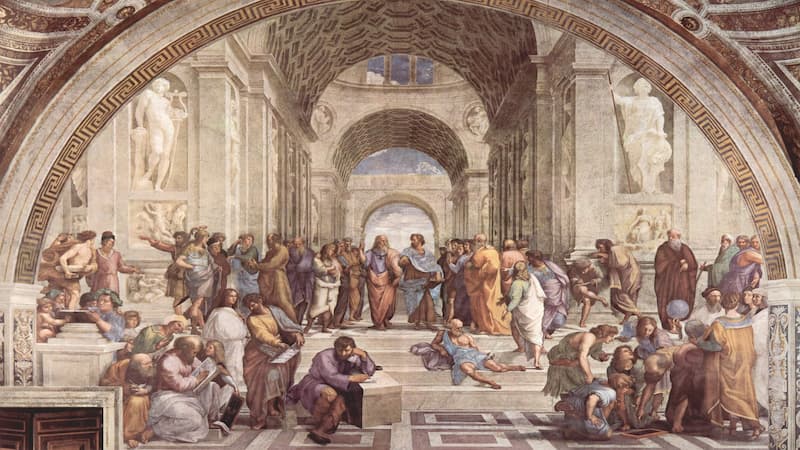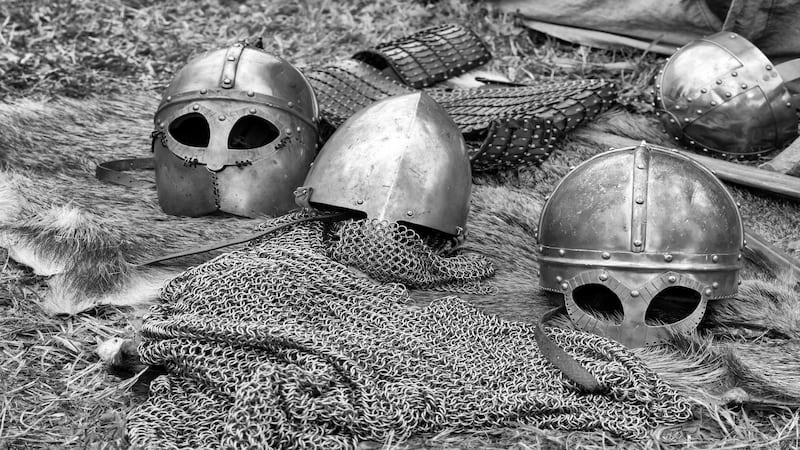The History and Intellectual Foundations of Western Civilisation
Explore the origins and history of Western Philosophy
About The Course
This course examines the Fundamental Foundations of Western Civilisation. It will explore the history and origins of its thought and the development of the principles of Western philosophy that underpin its institutions, society and states.
This course selects key influential thinkers and political philosophers that have shaped the Western intellectual tradition and schools of thought which gave rise to the sociological, political and economic landscape of Western civilisation we see today.
The course will critically examine Western history to answer the questions: “what ideas caused the West to become the civilisation it is today? And are those ideas “universal truths” or the product of speculation mixed with their perceived usefulness amid particular historical conditions?”
This course is a must for anyone who wishes to understand the West to engage its ideas and politics and understand its societies and the countries it has influenced.
Course Team
Ustadh Abdullah Al-Andalusi
(International Muslim Thinker, Speaker and Debater, London, UK)
12 Teaching Weeks
Duration : 4 months
Sundays,3 PM - 4:30 PM (London, UK)
Video Recordings Available

Mobile App
Live Q&A
Certificate
From £16.67/Month
Enrol Now
Starts on 15th January 2023
Course Fee:
Pay in Full:
Pay in 6 Installment: £19.99
Registration Deadline:
11th February 2023
Al Balagh Scholarship
AlBalagh Scholarship is available for learners who cannot afford the fee.
SESSIONS
SESSION 1
Birth of Thought in The Ancient Mediterranean World
SESSION 2
The First European Philosophers: The Pre-Socratics
SESSION 3
Socrates
SESSION 4
Plato
SESSION 5
Aristotle
SESSION 6
History and Philosophy of the Hellenistic Period
SESSION 7
Christianity and the Latin Church Fathers
SESSION 8
Medieval Christian Thought and The Rediscovery of Greek Philosophy
SESSION 9
The Renaissance
SESSION 10
The Western ‘Enlightenment’
SESSION 11
Anglo-Saxon Philosophy
SESSION 12
Continental Philosophy
Course Overview
The course will begin in today’s middle-east, showcasing the collapse of advanced civilisations that paved the way for the rise of a previously thought European backwater – Ancient Greece. With the influx of new ideas coming from the Ancient Middle East, the course will chart the effect this had on Greek thinking and the rise of speculation and philosophy. The course will focus heavily on Ancient Greek thought, demonstrating how these founding speculations and philosophies would underpin (and recur) Western thinking for the next 2500 years till the modern day.
After the spread of Greek thinking beyond Greece via Alexander of Macedon, the course will explore how the Romans took Greek ideas, built an empire, and how Greco-Roman culture changed – and was changed by – an emerging Jewish movement that took root amongst Greeks and Romans to become Christian eventually.
The course will follow early Christian thought from the fall of the Western Roman Empire until the rise of the Catholic Church, the encounter with Muslim thought, and the rediscovery of Ancient Greek philosophical texts leading to the renaissance.
The course then charts the rise of materialist political and ethical philosophy and the creation of an unintended by-product of the Renaissance – ‘The Enlightenment’ and will look at the rise of materialist political philosophies such as liberalism, socialism (and Marxist Socialism) and conservatism.
The course will end by looking at the rise of postmodernist philosophies and the current ‘culture wars’ occurring in the West (but mirrored throughout formerly colonial Westernised states).


Course Aims and Objectives
The course will seek to teach students:
- The origins of Ancient Greek philosophy and thought.
- The differing schools of thought within Greek philosophy.
- The three most influential Greek thinkers and how they set the tone for all further Western thought.
- How the Roman empire assimilated Greek thought and expanded on it.
- How Roman civilisation affected early Christian thought and doctrines, fundamentally changing it into the Christianity we have today.
- Medieval Church philosophy, theology and political and ethical thought, and the impact of the encounter with Muslim thinkers and re-discovered Ancient Greek texts.
- The origins of the Renaissance and the key developments in Western thought that would lead it to push technological progress.
- The origins of the Enlightenment and the early ideas arising from it that would fundamentally determine the social, political and economic landscape of the world today.
- The key modern Western philosophical movements and political philosophies today that affect both Western domestic and foreign affairs and post-colonial societies throughout the world.
Learning Outcomes
Students will acquire the following:
- Key knowledge about the origins, history and rise of Western civilisation.
- The ability to place modern Western ideas, concepts or philosophies within the historical Western philosophical tradition.
- Knowledge of Christian doctrines and their origins within popular Greco-Roman thought and philosophy.
- Knowledge of the origins and justifications of the Western materialistic philosophies and their original weaknesses and their subjective (i.e. non-universal) nature.
- Know how to engage the modern justifications of Western philosophies and concepts critically


